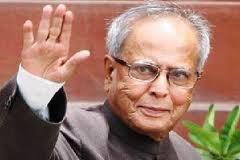
Kolkata, June 22: With Mamata Banerjee still keeping her cards close to her chest when other parties have announced their stand on the presidential poll, Congress president Sonia Gandhi doesn't want to lose an important ally even if it means "stooping" before her for the moment.
Sonia, instead, is looking beyond the presidential poll to keep the UPA family united when all other blocks, including the NDA and the Left, are divided on the issue.
The UPA's presidential candidate, Pranab Mukherjee, has been entrusted with the job of breaking the ice with Mamata. How he does it has been left to the veteran troubleshooter.
Mukherjee, who will reach Kolkata on Friday night, is scheduled to leave for his ancestral home at Miriti village in Birbhum on Saturday morning. All eyes will be on whether he pays the Trinamool chief a visit. Congress leaders in Delhi are not sure if their presidential candidate will meet Mamata now or keep it for the formal campaign tour after filing his nomination on June 30. But that may be too late to pacify Mamata, feel some Congress leaders.
According to Congress insiders, Mukherjee is trying to send feelers to Mamata through politicians and government officials, some of whom are already in touch her. The Congress wants to initiate a dialogue with her at the earliest because BJP's Sushma Swaraj has already indicated that her party is in talks with the Bengal chief minister to get Trinamool on board.
There was speculation in political circles that BJP's presidential nominee P A Sangma may visit Kolkata on the same day as Mukherjee. Trinamool leaders claimed no such knowledge. James Sangma, the former Lok Sabha Speaker's son, denied that his father had any plans to visit Kolkata on Friday.
A Trinamool veteran pointed out that it would be difficult for Mamata to support Sangma because the former Speaker was with the Trinamool for a short time in 1995, but deserted it as he has dumped the NCP now.




Comments
Add new comment